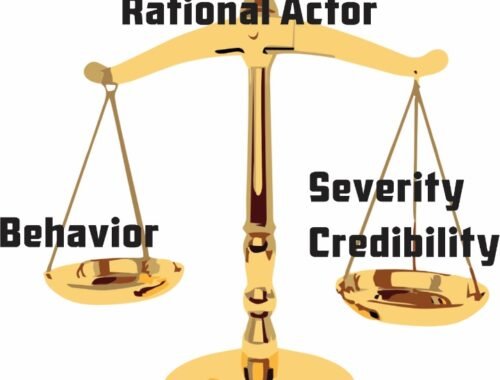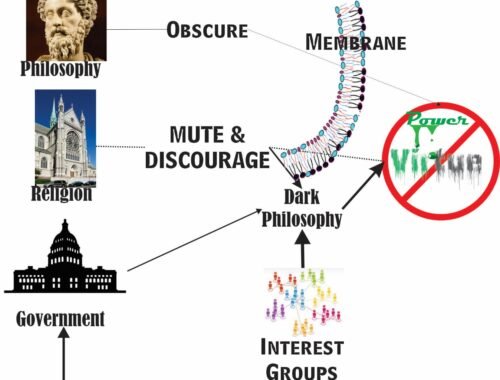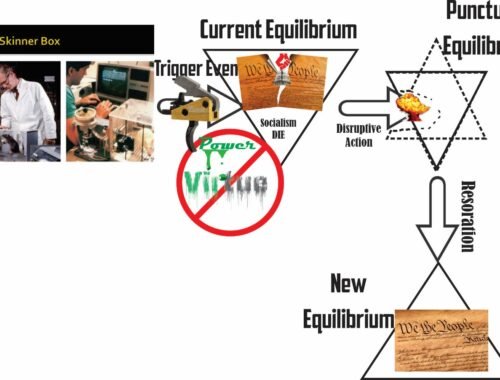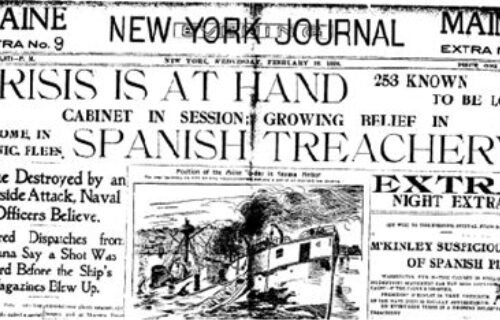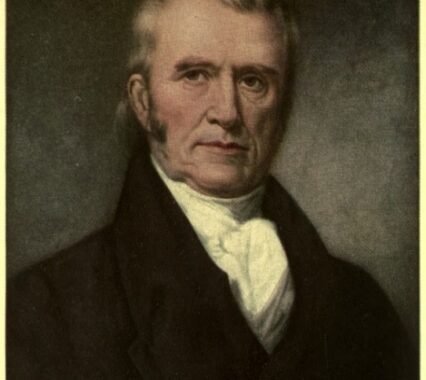Deterrence and the Interagency Process, Part 1: Deterrence
I came across an interesting article on LinkedIn on deterrence and how the military should be in control of it. I started a comment and midway through; I opened another browser tab to a quick search. When I got back…
Operant Conditioning, Path Dependency and Societal Revolution, Part 2
As in Part 1 of this series, first a disclaimer. I am of the philosophical line in the discussion below. I think we should teach and be models of virtue because it is right and good and not because…
Operant Conditioning, Path Dependency and Societal Revolution, Part 1
First a disclaimer. I dislike the practice of operant conditioning. It robs a person of their free will and inherently erodes virtue. Now there are some people in the neuroscience community that say freewill does not exist. While I cannot…
Power Shift, Part 8: Concluding Thoughts
“If you stare into the abyss, the abyss stares back at you” Friedrich Nietzsche I rather suspect many people that wield federal power or shape those who do have stared very long into the abyss. Some genuinely want to…
Power Shift, Part 7: The Great Society
“The Great Society rests on abundance and liberty for all. It demands an end to poverty and racial injustice, to which we are totally committed in our time. But that is just the beginning. The Great Society is a…
Power Shift, Part 6: World War II
A command economy is a key aspect of a political system in which a central governmental authority dictates the levels of production that are permissible and the prices that may be charged for goods and services. Most industries are…
Power Shift, Part 4: The Spanish-American War, the American Empire, and Progressivism
Abstract: The Spanish-American War is perhaps the least understood, crucial events in American History. It ushered in an era of the American Empire that build upon the previous westward expansion of the US. Empires need money and power. The US…
Power Shift, Part 2: Judicial Review
The constitution is either a superior paramount law, unchangeable by ordinary means, or it is on a level with ordinary legislative acts, alterable when the legislature shall please to alter it. It is emphatically the province and duty of…
Part 3: Pathbreaking Conceptual Framework, Three examples
Path dependencies and punctuated equilibriums can come in a variety of settings, ranging from the policy issues that True, et al. (2007) discussed, to war and other catastrophic events, to deliberate strategy. Sometimes, two or more of these situations work…
Part 2: The Conceptual Framework
Equilibriums are interesting. They seem to fly in the face of the Second Law of thermodynamics, which states that systems move from a state of order to a state of chaos. This process is called entropy. But the word equilibrium…

